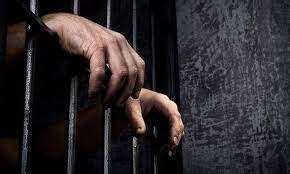In the heart of Pakistan, where minarets rise against the sky and the call to prayer echoes with hope, an unsettling silence hangs heavy—one built not from peace, but from fear. In 2024, a record-shattering 344 blasphemy cases were registered across the country, according to the Annual Human Rights Observer by the Center for Social Justice (CSJ). Behind each statistic is a name, a face, and a life irreparably damaged by a law that has become a weapon in the hands of intolerance.
The numbers are chilling. Nearly 70% of the accused were Muslims, followed by 14% Ahmadis, 9% Hindus, and 6% Christians—minorities living on the margins of society, now pushed even further into darkness. Their “crime” often is nothing more than a misunderstood word, a misinterpreted gesture, or a fabricated accusation driven by vengeance, property disputes, or personal jealousy.
Section 298-A, which criminalizes alleged disrespect towards Islamic figures, led the charge with 128 people accused, many of them imprisoned or living in hiding. But numbers don’t capture the agony of a mother separated from her son, or a father watching his daughter vanish into the black hole of Pakistan’s judicial system—if she’s lucky enough to make it there.
In Punjab, the epicenter of these accusations—home to over 62% of the cases—towns like Sheikhupura, Lahore, and Gujranwala have become known not for their heritage, but for the dangerous rise of vigilante “justice.” In Tharparkar, Sindh, a region rich in cultural coexistence, 35 cases shattered that fragile fabric in a single year.
And then there are the killings.
Ten people accused of blasphemy were murdered by mobs or lone attackers in 2024 alone. Their names may not make it to the news, but in the homes they leave behind, the grief is permanent. In Lahore and Rawalpindi, sons were dragged into the streets. In Karachi and Umerkot, suspicion alone cost lives. And in Quetta, a family mourned quietly, fearing that even their tears might be seen as blasphemous.
This is not new. Over 2,793 blasphemy accusations have been recorded between 1987 and 2024. Of them, 104 people were extra-judicially killed, with Punjab once again bearing the brunt—a staggering 69% of all such deaths. These victims were not just numbers. They were fathers, mothers, daughters, and sons, accused often without evidence, denied justice, and forgotten by the state.
In its report, the CSJ warns that Pakistan’s blasphemy laws, instead of protecting religion, have become a tool for systemic persecution. They have silenced dissent, emboldened mobs, and left minorities in a state of constant siege. Even Muslims are not spared; the very community presumed to be safeguarded by these laws finds itself trapped in a spiral of fear and retribution.
Behind the cold legal codes—Sections 295-A, 295-B, 295-C, and 298-C—are real stories. A Christian boy too young to spell “blasphemy” was chased from his village. An Ahmadi teacher was jailed for a lesson taken out of context. A Muslim man was lynched because someone overheard something he never said.
Pakistan stands at a moral crossroads. These laws, created to preserve religious respect, now serve as a litmus test for impunity, intolerance, and state failure. What began as a means to protect faith has become a license to persecute.
The world watches. But inside Pakistan, the walls close in on those whose only crime is to think, speak, or exist differently. Justice—if it ever comes—arrives too late for the dead.
Until then, the question remains: How many more lives must be destroyed before the silence is broken?
